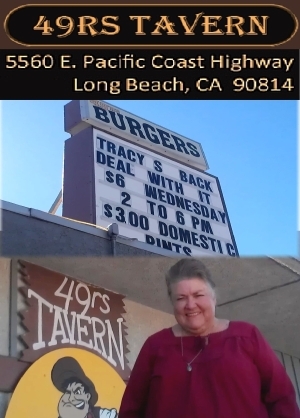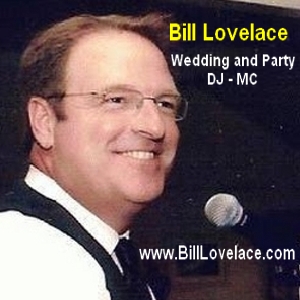| (Feb. 21, 2013) -- Long Beach area State Senator Ricardo Lara (D., LB-Huntington Park) has introduced a bill, joined as a co-author by Long Beach area Assemblywoman Bonnie Lowenthal (D., LB), that would deny public charity youth organizations certain state tax benefits (including exemptions from payment of corporate income tax on donations and other forms of income and exemption from certain state sales/use taxes) if they discriminate on the basis of gender identity, sexual orientation or religious affiliation.
SB 323 (full text as introduced below) would add gender identity, sexual orientation and religious affiliation to an existing list of discrimination categories (joining race, sex, nationality and religion) as grounds for denying exemptions from corporate income tax (including on donations) and certain state sales/use taxes (on sale of food, non-alcoholic beverages and self-manufactured items) to public schools, non-profit private schools (K-12 inclusive), college undergraduate programs and various groups. SB 323 would apply to groups now enumerated in current CA tax law as subject to anti-discrimination provisions: Little League, Bobby Sox, Boy Scouts, Cub Scouts, Girl Scouts, Campfire, Inc., Young Men's Christian Association, Young Women's Christian Association, Future Farmers of America, Future Homemakers of America, 4-H Clubs, Distributive Education Clubs of America, Future Business Leaders of America, Vocational Industrial Clubs of America, Collegiate Young Farmers, Boys' Clubs, Girls' Clubs, Special Olympics, Inc., American Youth Soccer Organization, California Youth Soccer Association, North, California Youth Soccer Association, South, and Pop Warner football).
SB 323 is supported by Equality California (CA's largest statewide LGBT advocacy group), which issued a statement on the same day as Sen. Lara introduced the measure:
[Equality California statement] On the heels of the controversy surrounding the Boys Scouts of America's policy to exclude members of the lesbian, gay, bisexual and transgender (LGBT) community as scouts or adult leaders, today State Senator Ricardo Lara (D-Long Beach) and Equality California announced the introduction of new legislation that would remove a state tax exemption for any youth group, including the Boy Scouts, that discriminate against members and leaders on the basis of sexual orientation or gender identity. Currently, organizations that discriminate on these grounds may still receive sales and corporate tax exemptions, a provision that is intended to encourage acting in the public interest.
"Our state values the important role that youth groups play in the empowerment of our next generation; this is demonstrated by rewarding organizations with tax exemptions supported financially by all Californians," stated Senator Lara. "SB 323 seeks to end the unfortunate discriminatory and outdated practices by certain youth groups by revoking their tax exemption privilege should they not comply with our non-discrimination laws."
"California does not tolerate discrimination, and by removing this exemption, we will make it clear to the Boy Scouts and all other organizations that discrimination has a real cost," said John O'Connor, Equality California executive director. "We believe this legislation will encourage groups to do the right thing, which is ending their discriminatory policies that unfairly exclude LGBT people."
Some organizations in California, defined similarly to non-profit organizations under federal law, receive exemptions from state corporate taxes and taxes on items they sell. SB 323 would end this exemption for youth groups that continue to discriminate by treating their sales to the same extent as any other retailers. This bill would also require organizations with discriminatory policies to pay corporate taxes on donations and other forms of income.
Existing California law prohibits discrimination based on sexual orientation or gender identity in public accommodations and government programs, and this law will end a special exemption for organizations that discriminate on these bases...
SB 323 drew early opposition from the CA Association of Non-Profits, which indicated it opposes the bill in its current form although it opposes the types of discrimination targeted by the bill.
As of Feb. 21, the Boy Scouts of America hadn't commented publicly on SB 323. BSA's official position is to "not grant membership to individuals who are open or avowed homosexuals" as Scouts or adult Scout Leaders in its traditional Scouting programs. In a June 7, 2012 release, it stated:
While the BSA does not proactively inquire about the sexual orientation of employees, volunteers, or members, we do not grant membership to individuals who are open or avowed homosexuals or who engage in behavior that would become a distraction to the mission of the BSA. Scouting believes same-sex attraction should be introduced and discussed outside of its program with parents, caregivers, or spiritual advisers, at the appropriate time and in the right setting. The vast majority of parents we serve value this right and do not sign their children up for Scouting for it to introduce or discuss, in any way, these topics. The BSA is a voluntary, private organization that sets policies that are best for the organization. The BSA welcomes all who share its beliefs but does not criticize or condemn those who wish to follow a different path.
In a Feb. 6 statement, BSA's Executive Board said:
For 103 years, the Boy Scouts of America has been a part of the fabric of this nation, providing its youth program of character development and values-based leadership training. In the past two weeks, Scouting has received an outpouring of feedback from the American public. It reinforces how deeply people care about Scouting and how passionate they are about the organization.
After careful consideration and extensive dialogue within the Scouting family, along with comments from those outside the organization, the volunteer officers of the Boy Scouts of America’s National Executive Board concluded that due to the complexity of this issue, the organization needs time for a more deliberate review of its membership policy.
To that end, the National Executive Board directed its committees to further engage representatives of Scouting’s membership and listen to their perspectives and concerns. This will assist the officers’ work on a resolution on membership standards. The approximately 1,400 voting members of the National Council will take action on the resolution at the National Annual Meeting in May 2013.
Multiple courts have upheld the Boy Scouts' legal right to set its own membership standards. In 2000, the U.S. Supreme Court (on a 5-4 vote) held that a private group is allowed, under certain criteria, to exclude a person from membership through their First Amendment right to freedom of association in spite of state antidiscrimination laws (Boy Scouts of America v. Dale). The Supreme Court majority ruled that opposition to homosexuality is part of BSA's "expressive message" and allowing homosexuals as adult leaders would interfere with that message. The ruling reversed a New Jersey Supreme Court decision that said the state's public accommodations law required BSA to readmit an assistant Scoutmaster who had made his homosexuality public and was expelled from the group.
For enactment, SB 323 would require passage by 2/3 majorities in CA's state Senate and Assembly; Democrats gained 2/3 majorities in both houses in the November 2012 elections; a veto by the Governor could also be overridden by 2/3 majorities in the Assembly and state Senate.
Sen. Lara introduced SB 323 on Feb. 19 with co-authors Senators DeSaulnier, De León, Leno and Monning, joined by Assemblymembers Ammiano, Bloom, Eggman, Garcia, Gomez, Gordon, Lowenthal, Mitchell, and Rendon.
The text of SB 323 as introduced is below (italics indicate new proposed legislative text):
BILL NUMBER: SB 323 INTRODUCED
BILL TEXT
INTRODUCED BY Senator Lara
(Principal coauthor: Senator DeSaulnier)
(Coauthors: Senators De León, Leno, and Monning)
(Coauthors: Assembly Members Ammiano, Bloom, Eggman, Garcia,
Gomez, Gordon, Lowenthal, Mitchell, and Rendon)
FEBRUARY 19, 2013
An act to amend Sections 6361 and 23701d of the Revenue and
Taxation Code, relating to taxation, to take effect immediately, tax
levy.
LEGISLATIVE COUNSEL'S DIGEST
SB 323, as introduced, Lara. Taxes: exemptions: prohibited
discrimination.
The Sales and Use Tax Law exempts from the taxes imposed by that
law the sales of food products, nonalcoholic beverages, and other
tangible personal property made or produced by an organization, as
defined, but only if sold on an irregular or intermittent basis and
the organization's profits from the sales are used exclusively in
furtherance of the purposes of the organization. The Corporation Tax
Law, in modified conformity with federal income tax laws, exempts the
income of various types of organizations from taxes imposed by that
law.
This bill would revise the Sales and Use Tax Law exemption for
those organizations, as provided. This bill would also provide that
an organization that is a public charity youth organization that
discriminates on the basis of gender identity, race, sexual
orientation, nationality, religion, or religious affiliation is not
exempt from the taxes imposed by that law.
This bill would include a change in state statute that would
result in a taxpayer paying a higher tax within the meaning of
Section 3 of Article XIII A of the California Constitution, and thus
would require for passage the approval of 2/3 of the membership of
each house of the Legislature.
This bill would take effect immediately as a tax levy.
Vote: 2/3. Appropriation: no. Fiscal committee: yes.
State-mandated local program: no.
THE PEOPLE OF THE STATE OF CALIFORNIA DO ENACT AS FOLLOWS:
SECTION 1. Section 6361 of the Revenue and Taxation Code is
amended to read:
6361. (a) Any organization listed or described in subdivision (b)
is a consumer and shall not be considered a retailer within the
provisions of this part, of food products, nonalcoholic beverages, or
other tangible personal property made or produced by members of the
organization provided, however, that the organization's sales are
made on an irregular or intermittent basis, and that the organization's
profits from those sales are used exclusively in furtherance of the
purposes of the organization.
(b) For purposes of this section, "organization" includes any of
the following:
(1) Any nonprofit organization which meets all of the following
conditions:
(A) The organization qualifies for tax-exempt status under Section
501(c) of the Internal Revenue Code.
(B) The organization's primary purpose is to provide a supervised
program of competitive sports for youth, or to promote good
citizenship in youth.
(C) The organization does not discriminate on the basis of
gender identity, race, sex, sexual orientation,
nationality, or religion , or religious
affiliation .
(2) (A) Any youth group sponsored by or affiliated with a
qualified educational institution, including, but not limited to, any
student activity club, athletic group, or musical group.
(B) For purposes of this section, "qualified educational
institution" means any of the following:
(i) Any public elementary, secondary, or vocational-technical
school providing education for kindergarten, grades 1 to 12,
inclusive, and college undergraduate programs, or any part thereof,
operated by state or local government.
(ii) Any nonprofit private educational institution providing
education for kindergarten, grades 1 to 12, inclusive, and college
undergraduate programs, or any part thereof, that meets the
requirements of the State Department of Education for a school.
"Private educational institution" means any entity providing
education which satisfies the requirements of state and local laws
pertaining to private educational institutions in effect on January
1, 1990, and which does not discriminate on the basis of gender
identity, race, sex, sexual orientation,
nationality, or religion , or religious
affiliation .
(3) (A) Little League, Bobby Sox, Boy
Scouts, Cub Scouts, Girl Scouts, Campfire, Inc., Young Men's
Christian Association, Young Women's Christian Association, Future
Farmers of America, Future Homemakers of America, 4-H Clubs,
Distributive Education Clubs of America, Future Business Leaders of
America, Vocational Industrial Clubs of America, Collegiate Young
Farmers, Boys' Clubs, Girls' Clubs, Special Olympics, Inc., American
Youth Soccer Organization, California Youth Soccer Association,
North, California Youth Soccer Association, South, and Pop Warner
football.
(B) An organization listed above shall not discriminate on the
basis of gender identity, race, sexual orientation, nationality,
religion, or religious affiliation.
(c) For purposes of this section, "irregular or intermittent"
means associated directly with a particular event, such as fairs,
galas, parades, scout-a-ramas, games, and similar activities. That
term includes refreshment stands or booths that are utilized at
scheduled events of organized leagues, but does not include
storefront or mobile retail outlets which ordinarily require local
business licenses.
SEC. 2. Section 23701d of the Revenue and Taxation Code is amended
to read:
23701d. (a) A corporation, community chest or trust, organized
and operated exclusively for religious, charitable, scientific,
testing for public safety, literary, or educational purposes, or to
foster national or international amateur sports competition (but only
if no part of its activities involved the provision of athletic
facilities or equipment), or for the prevention of cruelty to
children or animals, no part of the net earnings of which inures to
the benefit of any private shareholder or individual, no substantial
part of the activities of which is carrying on propaganda or
otherwise attempting to influence legislation, (except as otherwise
provided in Section 23704.5), and which does not participate in, or
intervene in (including the publishing or distribution of
statements), any political campaign on behalf of (or in opposition
to) any candidate for public office. An organization is not organized
exclusively for exempt purposes listed above unless its assets are
irrevocably dedicated to one or more purposes listed in this section.
Dedication of assets requires that in the event of dissolution of an
organization or the impossibility of performing the specific
organizational purposes the assets would continue to be devoted to
exempt purposes. Assets shall be deemed irrevocably dedicated to
exempt purposes if the articles of organization provide that upon
dissolution the assets will be distributed to an organization which
is exempt under this section or Section 501(c)(3) of the Internal
Revenue Code or to the federal government, or to a state or local
government for public purposes; or by a provision in the articles of
organization, satisfactory to the Franchise Tax Board; that the
property will be distributed in trust for exempt purposes; or by
establishing that the assets are irrevocably dedicated to exempt
purposes by operation of law. The irrevocable dedication requirement
shall not be a sole basis for revocation of an exempt determination
made by the Franchise Tax Board prior to the effective date of this
amendment.
(b) (1) In the case of a qualified amateur sports organization--
(A) The requirement of subdivision (a) that no part of its
activities involves the provision of athletic facilities or equipment
shall not apply.
(B) That organization shall not fail to meet the requirements of
subdivision (a) merely because its membership is local or regional in
nature.
(2) For purposes of this subdivision, "qualified amateur sports
organization" means any organization organized and operated
exclusively to foster national or international amateur sports
competition if that organization is also organized and operated
primarily to conduct national or international competition in sports
or to support and develop amateur athletes for national or
international competition in sports.
(c) (1) Notwithstanding subdivisions (a), (b), and (c) of Section
23701, an organization organized and operated for nonprofit purposes
in accordance with this section shall be exempt from taxes imposed by
this part, except as provided in this article or in Article 2
(commencing with Section 23731), upon its submission to the Franchise
Tax Board of one of the following:
(A) A copy of the determination letter or ruling issued by the
Internal Revenue Service recognizing the organization's exemption
from federal income tax under Section 501(a) of the Internal Revenue
Code, as an organization described in Section 501(c)(3) of the
Internal Revenue Code.
(B) A copy of the group exemption letter issued by the Internal
Revenue Service that states that both the central organization and
all of its subordinates are tax-exempt under Section 501(c)(3) of the
Internal Revenue Code and substantiation that the organization is
included in the federal group exemption letter as a subordinate
organization.
(2) Upon receipt of the documents required in subparagraph (A) or
(B) of paragraph (1), the Franchise Tax Board shall issue an
acknowledgment that the organization is exempt from taxes imposed by
this part, except as provided in this article or in Article 2
(commencing with Section 23731). The acknowledgment may refer to the
organization's recognition by the Internal Revenue Service of
exemption from federal income tax as an organization described in
Section 501(c)(3) of the Internal Revenue Code and, if applicable,
the organization's subordinate organization status under a federal
group exemption letter. The effective date of an organization's
exemption from state income tax pursuant to this subdivision shall be
no later than the effective date of the organization's recognition
of exemption from federal income tax as an organization described in
Section 501(c)(3) of the Internal Revenue Code, or its status as a
subordinate organization under a federal group exemption letter, as
applicable.
(3) If, for federal income tax purposes, an organization's
exemption from tax as an organization described in Section 501(c)(3)
of the Internal Revenue Code is suspended or revoked, the
organization shall notify the Franchise Tax Board of the suspension
or revocation, in the form and manner prescribed by the Franchise Tax
Board. Upon notification, the board shall suspend or revoke,
whichever is applicable, for state income tax purposes, the
organization's exemption under paragraph (1) of this subdivision.
(4) This subdivision shall not be construed to prevent the
Franchise Tax Board from revoking the exemption of an organization
that is not organized or operated in accordance with this chapter or
Section 501(c)(3) of the Internal Revenue Code.
(5) If the Franchise Tax Board suspends or revokes the exemption
of an organization pursuant to paragraph (3) or (4), the exemption
shall be reinstated only upon compliance with Section 23701,
regardless of whether the organization can establish exemption under
paragraph (1).
(d) (1) Notwithstanding any other law, an organization organized
and operated exclusively as a public charity youth organization that
discriminates on the basis of gender identity, race, sexual
orientation, nationality, religion, or religious affiliation shall
not be exempt from taxes imposed by this part.
(2) For purposes of this subdivision, a "public charity youth
organization" includes, but is not limited to, those organizations
listed in subparagraph (A) of paragraph (3) of subdivision (b) of
Section 6361.
(d)
(e) The Franchise Tax Board may prescribe rules and
regulations to implement this section.
SEC. 3. This bill would take effect immediately as a tax levy.
Developing.
Return To Front Page
Contact us: mail@LBReport.com
|



Ad above provided in the public interest by:








Hardwood Floor Specialists
Call (562) 422-2800 or (714) 836-7050

|













